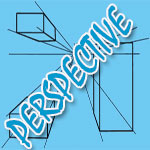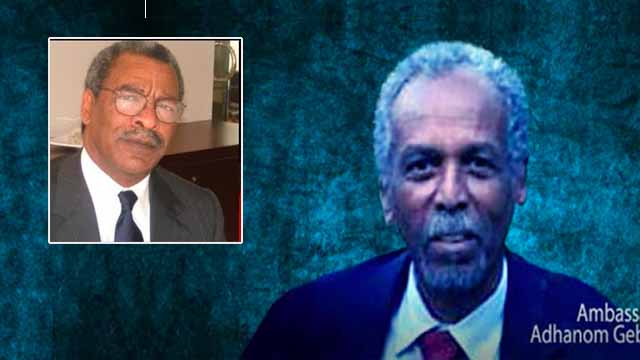Walk, Be Brave And Strong

What guides us to be on the right path and how do we know we are on the right path? Is it our history, our religions, our philosophies, our prevailing realities or a mix of all? Where are the sign-posts on the road and the light-houses on the harbor?
These are the questions in the minds of most of us. We certainly do not want to venture aimlessly; we could end up anywhere and nowhere. The Bible exhorts us, “Do not remove an ancient boundary stone set up by your forefathers.” Have we removed the ancient boundary stones set up by our forefathers? We seem to be lost in the abyss of indecisiveness and the murky waters of misunderstanding. There is, however, a voice in the wilderness calling us relentlessly to open our eyes and see; and to open our ears and hear or even better listen.
For many years now, we have tried to ignite the torch of freedom, the flames of justice, the fire of mass uprisings and the occasional sparks we had produced have failed to gather momentum. It is time we honestly and critically evaluate and assess our positions and figure out where we have gone wrong. The purpose-driven acknowledgment of our failures is a good thing, for it will give birth to our future success.
Our journey should begin with a simple but very important question. Kab guyey mw’Al ksad mHaz. Where is the rock on our David’s sling that we should aim at the hgdefite Goliath?
Many would agree that it is time to slain Goliath. Whether your sling has the rock of violence or non-violence, I suggest you just do it. Whether you believe in the former or latter, you would be judged not by your means, but by your end. If you believe the end does not justify the means, think again. A tree is known not by how it grows but by the fruits it bears.
The same people, all over the world, who were cheering for the uprisings in Tunisia and Egypt, are cheering for the revolts in Libya, Yemen and Syria. I’m particularly impressed by the heroic resistance of the people of Hama (Syrian province), and equally disheartened by the lack of resistance in my own.
Unfortunately talk is what we have become and what we are. It is cheap; the only thing one can do from thousands of miles away from Asmera. Walk on the other hand, requires planning and effort, and it is one thing that cannot be done from thousands of miles away from Asmera. It is a stark contrast; the choices can not be clearer.
Talk creates dissention and contempt, while walk (work) unifies and fosters mutual respect. If you ever wondered what ails the opposition the most, it is talk; endless talk. The most poignant criticism about the opposition came from someone who habitually denies its existence, the petty dictator in Asmera; El loco Presidente Isaias Afwerki. “Hashewye wdebat” should be a clarion call for action.
Both ELF and EPLF have their virtues and vices and it behooves us to learn from both of them. It is beyond the scope of this article to explain how I am daring to make, what on its face-value seems an outlandish statement, but it suffice to mention that I find nHnan elamanan a work of genius. It is a document that needs to be taught in every school and emulated by those people who identify themselves as wo/men of action. What could possibly be wrong with a book that clearly spells out the “we” and the “objectives” of an organization! The book is clear, concise and to the point, and substantively, much better than any Eritrean political document I’ve read. If the opposition decides to be action oriented, then spelling out nHnan elamanan is a necessity that cannot be shelved aside.
ELF was all talk and EPLF all walk and guess who entered Asmera? Am I guilty of over-generalization here? You bet! But, a point is being made and I hope you forgive me for it. As it is usually the case, the solution to our problem is in font of our eyes: let’s be more of an EPLF now and more of an ELF when we enter Asmera.
It seems to me the remedy to our ills is, to borrow a line from my all-time favorite movie, The Shawshank Redemption, “Get busy living or get busy dying.” Walk is the name of the game; walk towards Asmera. Nesmera ksemrelna.
Anyone who opposes the Isaias regime is on the right side of history. But the future belongs not only to the one who is right but to the one who also works for it. It is no more enough for us to just be right; we’ve to win. Once in a conversation with my beloved, I had an epiphany moment: spouses should not have to choose between love and romance; the two ought to go hand in hand. Likewise, winning and being right ought to go hand in hand. Edn guantn. If we only talk, Asmera would then be a mirage in the desert. If we walk, the journey might be long and arduous, but we are sure to find many oases on our way to Asmera.
The one thing that is lacking in the Eritrean opposition is commitment; that uncompromising commitment that comes from a clear vision. The unshakeable belief that tomorrow will be better than today; that the benefit far outweighs the cost and that dying free is better than living as a slave. That fountain of enthusiasm is what is going to make or break our struggle for freedom and justice. Like pious and devout pilgrims, we walk the unforgiving arid desert on our way to Mecca because that is the closest we will ever come to tasting the fragrance of paradise.
Unfortunately, we– in the opposition–have become too Diaspora-centric, and unsurprisingly too calculating. In our comforts and ease, we’ve intuitively figured out that the stakes are not too high and that the injustices committed by the regime are to be condemned but not fought against. We rationalize our inactions on timeliness and waiting reigns supreme in our lives. But waiting is neither a strategy for winning nor conducive for fostering patience and tranquility. We lose on both counts.
Unfortunately, we are very aware of our moral righteousness and generously confer on ourselves honorific titles such as tegadelti, Human Rights Defenders, and Democracy and Justice Advocators. It is surreal, and could have been farcical, had it not been too costly for those helpless and voiceless Eritreans that are the primary victims of the regime in Asmera. In their deafening silence, the victims are echoing the timeless words of Jesus “I was hungry and you gave me nothing to eat, I was thirsty and you gave me nothing to drink, I was a stranger and you did not invite me in, I needed clothes and you did not clothe me, I was sick and in prison and you did not look after me.” I wonder why Jesus did not say, “I was in distress and you did not pray for me.” In fact, every Christian and Muslim would tell you that prayer is an act of charity but prayer should not supersede these tangible acts of charity that have immediate and life-changing consequences.
First things should come first. Prioritize! Prioritize! And Prioritize! The change we want to effect is in Eritrea, and as such, all of our focus, at least, most of it should be there. As Diaspora Eritreans, each and every one of us must ask what s/he can do to move the carriage of the struggle forward. The game is real and one must determine his/her role. Are you a starter, a bench-warmer or a paying spectator that cheers for the players in the arena doing all the sweating; all the walking? We need less of the bench-warmers and more if the rest.
The problem with the Diaspora is that many of its members have the will to be starters but lack the ability and resources, and the few that have the resources lack the will. There is not a whole lot we can do about the latter but we can certainly remedy the former. Most of us should support the few that have the will and the talent but who lack the resources. The best way to vote for change in Eritrea is through our pocket-books; let’s fund those few who have demonstrated willingness and talent and the potential for leadership to help us embark on a serious enterprise.
Tes Meharena of Asmarino.com has been on a crusade about this above-mentioned idea since I had the honor of meeting him; I’m just his early disciple. I know Tes would care less whether I give him credit or not for this idea, but in my world, zgebere wey ngrelu wey gberelu still counts as virtue. If Tes would preach less about the obvious “yeHwat indina” mantra, he is actually one guy we would be lucky to have as a starter. The last thing we need in this enterprise is, however, spineless “qushet aqshishti” who would avoid important issues for fear of controversy and hide behind the shield of idyllic hymns of love and fraternity. When good things are used in the wrong context they lose their vigor and vitality. It should not be the case of “Kilmet Haq yuradi biha baTl.”
There is truly nothing new under the sun; everything that is new, was. The recipe for our success is as old as the Bible. As Joshua was preparing the Israelites to enter the Promised Land, God told him to be brave and strong. We become brave by the conviction of our cause and principles, and we become strong through our unity; unity of purpose, and the moral injunction that who ever is not against us is with us.
We need that contagious enthusiasm; that commitment that fosters hope, for without hope no wo/man would wander for forty years in the desert, or fight for thirty years in the mountains of Sahel and the arid plains of Barka.
It can be done; we have done it before and we can do it again.
Semere Habtemariam is the author of “Hearts Like Birds.” You can order the book at semerehabtemariam.com



Awate Forum